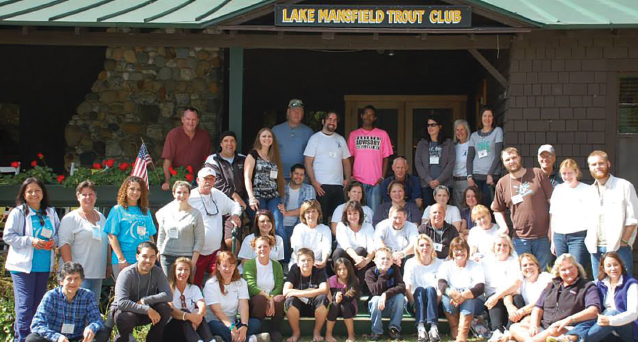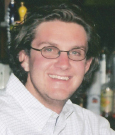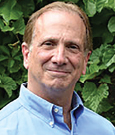When Tucker Davis was diagnosed with fibrolamellar hepatocellular carcinoma (FL-HCC) in 2008, there was very little information about this very rare cancer and, as Tucker would soon discover, even fewer treatment options available. An annoying cough and sharp pain radiating down his back leg eventually prompted him to see his physician. After a few tests, he was shocked to learn that he had this very rare form of liver cancer that is only correctly diagnosed in an estimated 200 people each year worldwide. After discovering the lack of information available about FL-HCC and nonexistent patient community, Tucker, along with his girlfriend and two friends, started the Fibrolamellar Cancer Foundation (FCF).
Tucker passed away in 2010 at only 28 years old. According to Marna Davis, Tucker’s mother and President of FCF, “The last 18 months of his life were his finest hour. We saw courage in him that we had never seen before. He was funny, sweet, kind, goofy, never got depressed, and just had an attitude to live.” Tucker once said, “Mom, I know there is a cure out there and I hope we find it in my lifetime, but if we don’t, you have to find it.” Tucker’s legacy lives on in the foundation he founded and established to help other patients and families affected by FL-HCC.
The Goals of FCF
The mission of FCF is three-fold: find a cure and treatment options; raise awareness of this disease; and connect and support the fibrolamellar community of patients and their families. According to John Hopper, Executive Director of FCF, one major challenge is that very little government research is being funded in this area since there are such low incidence rates of the disease.
FCF has addressed this by supporting the creation of the Fibrolamellar-Hepatocellular Carcinoma Consortium, which brings together multiple academic medical centers and universities to cooperate and share information about FL-HCC. FCF is aggressively supporting research in this area and has funded the Tucker Davis Fibrolamellar Research Facility, the first tissue bank for fibrolamellar samples, which is maintained at the Rockefeller University. It is also funding efforts to create mouse models to replicate tumors so physicians and scientists can investigate different therapies.
In 2016, FCF is generously supporting a Conquer Cancer Foundation of ASCO Young Investigator Award (YIA) in FL-HCC. “To encourage someone early in his/her career to learn about FL-HCC, focus on it, and give him or her opportunity to collaborate with a senior researcher at that organization is a great starting point,” said Mr. Hopper. He urges young investigators to take a “deep look” at FL-HCC and hopes that young minds coming out of medical and fellowship programs may see this as a way to make a difference in people’s lives. FCF is especially pleased to be working with the Conquer Cancer Foundation and ASCO to generate additional awareness about this disease through the YIA program, which reaches a very large global population.
“While fibrolamellar hepatocellular carcinoma is rare, it is relatively simple with few mutations noted, occurring in apparently healthy young people with a generally predictable natural history, so many of the typical confounders are not present,” said Alan Venook, MD, Professor of Medical Oncology and Translational Research at the University of California, San Francisco, ASCO member, and FCF Scientific Advisory Board member. “The bonus is that it is not unlikely that a discovery in a rare cancer may open up other areas of exploration in common cancers,” he said.
Creating a Community
FCF is focused on motivating research and encouraging collaboration in the scientific community. In 2014, FCF convened its first scientific conference in Greenwich, Connecticut, where approximately 30 American and international physicians and scientists who are studying FL-HCC, treating patients with FL-HCC, or expanding their understanding of the disease all gathered to learn from one another and engage in collaborative efforts.
Creating a community for patients and their families was of unparalleled importance to Tucker Davis. FCF maintains an active dialogue with its stakeholders through social media and on its website. Since 2012, FCF has hosted a yearly gathering in Stowe, Vermont, for over 100 people from all over the country who have been affected by FL-HCC. There is no agenda, program, or scheduled sessions during this retreat. It is simply a wonderful opportunity for patients, families, and caregivers to meet others who have also been affected by this awful disease and to create connections and promote bonding among this community.
With obvious passion and conviction, Mr. Hopper explains that FL‑HCC is the most interesting puzzle he has faced in his approximately 35 years in the business world. “All the pieces are out there. Energetic minds want to research this. Passionate oncologists want a cure for this. What we have needed is someone to be able to put these pieces together and see the big picture. Strategic collaboration will allow us to extend people’s lives and, hopefully, find a cure for this disease,” he said.
To learn more about the Fibrolamellar Cancer Foundation, please visit www.fibrofoundation.org. To learn more about the Conquer Cancer Foundation, please visit www.ConquerCancerFoundation.org. ■
Originally printed in ASCO Connection. © American Society of Clinical Oncology. “Conquer Cancer Foundation Donor Spotlight: Fibrolamellar Cancer” connection.asco.org 21 August 2015. All rights reserved.




